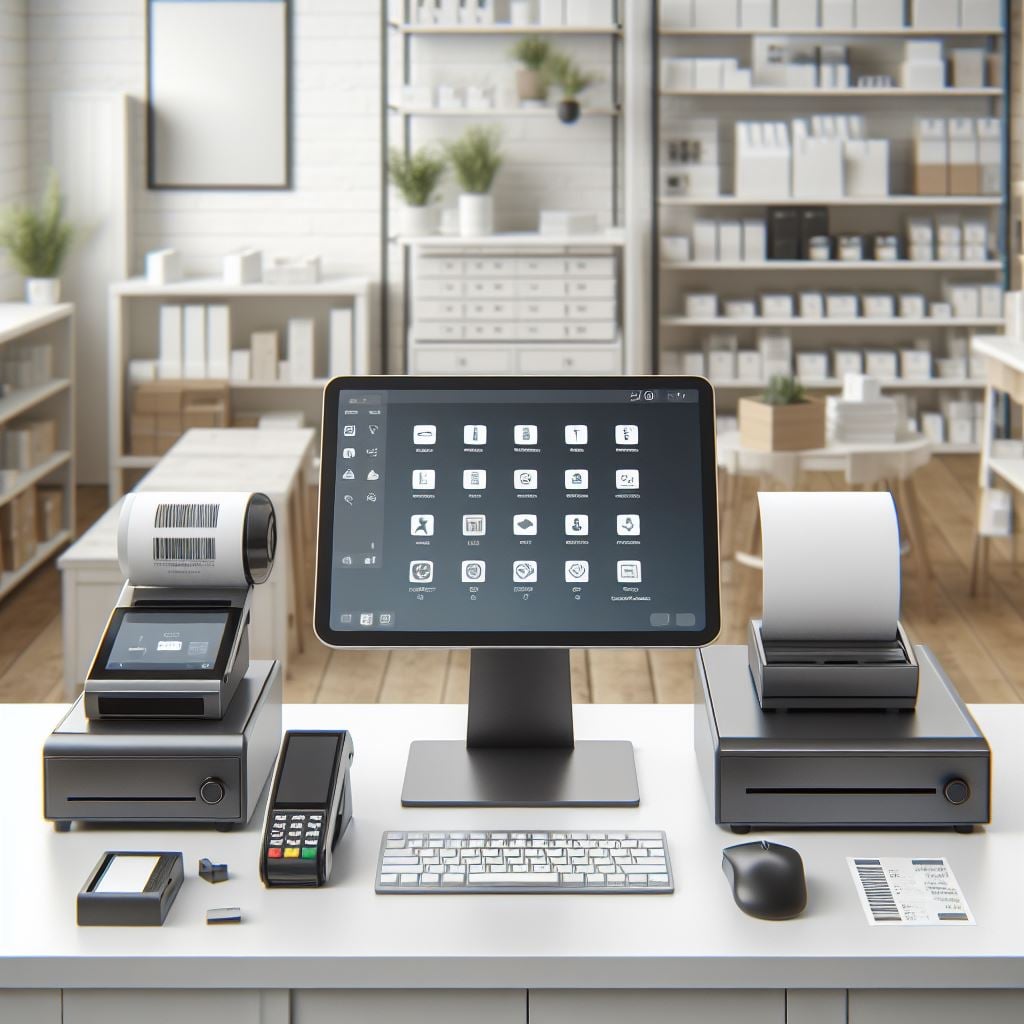
In the dynamic landscape era, the start-up of a business is important and for the initial stage, the decision plays an important role whether it is for a small stage level or a large stage. Choosing the right point of sale system (POS) needs much attention. The point-of-sale system visualizes the important element for a start-up’s success and acts as a backbone of the transactions, inventory management, and customer interaction. When one understands the start-up needs, one can easily choose the right point of sale system. This article will help to decide how to select the right POS software for a start-up.
Tips for Choosing the Right POS for a Start-up
The question always arises what are the tips for choosing the right POS software for a start-up? It requires a lot of research. Following are the tips for selecting the Right POS Software for a Startup;
1. Be Sure to Choose the Right POS for your industry:
First, you must be sure which POS is best for your industry. Different industries require point-of-sale systems such as restaurants, hotels, retail, wholesale stores, services, and bars. Each industry has different requirements. Strong inventory management is a requirement of retail stores, the restaurant needs management of tables and managing reservations is a requirement of hotels. Managing everything is hard to handle but a good POS can handle all these difficulties. It is important to choose the right POS software for each industry otherwise the needs will not be met properly. Many companies such as Sarmad Engineering Solutions provide software that enhances the efficiency of each industry, and not only gives benefits to retail but also provide benefits to restaurants and hotels.
2. Define your Specific Business Needs:
The second tip is to define the specific business needs. You have to define the features, functions, and services that you need to manage your retail store. Then you have to define the status of your business either you start from scratch, upgrade from an old cash register, and switch to a new software completely. Then classify the major difficulties you face in your business such as mismanagement in inventory—long queues due to slow transactions, and inaccurate reporting. If you own a store network, multi-stores, and warehouses, a multi-store POS will benefit the business. If you only have a single platform a single point of sale is sufficient for the management of your business.
3. Look for Transparent Pricing Plans:
A market survey is important for a start-up business because various companies offer point-of-sale systems and each company offers different prices for points of sale. You have to choose the transparent pricing plan which is best for you and give you benefits. Many options are available in the market you have an understanding to differentiate between them. Such as;
- Purchasing a software license
- Paying an annual service fee
- Signing a multi-year contract
When selecting a POS, you have to be aware of the extra possible costs because software and customer support are sometimes not added to the package. Most newer cloud point-of-sale systems offer monthly or yearly subscriptions. According to business size most offer tiered pricing. Discount prices are also available if you opt to pay annually.

4. Define Essential Integrations:
The point-of-sale system runs day-to-day transactions and operations, so ensure it has all the features and integrations to run your business smoothly. A point-of-sale can virtually do a lot of things. The ability to connect with other things is extremely important. Make sure it can easily integrated with other platforms such as;
- E-commerce
- ERP
- CRM
- Marketing
- Warehouse Management
- Market place
So if you know the importance of POS integrations then ensure that your POS offers integration or has an open API.
5. Mobility and Flexibility:
Whatever the point of sale system you are selecting it must show mobility and flexibility. If you have physical transactions in a store you may have software that shows transactions anywhere in the store smoothly. If you do online transactions or an event you need software that supports multi-channel sales and can be accessed from anywhere with a proper internet connection.
6. Security Features:
Security is a dominant feature when it comes to transactions either online or physical. You must choose such point-of-sale software that integrates with company standards and offers security features such as end-to-end encryptions etc. Moreover, choose software that provides regular updates and patches to protect from threats.
7. Ease of Use:
As a start-up entrepreneur, you must choose software that is easy to understand and use for you, your employees, and your customers for making transactions. Choose software that requires minimal training. Look for software that reduces the frustrations of your staff and smooths your operations.
Conclusion:
In sum, POS software enhances your growth in retail business and streamlines your operations. All seven steps will be helpful for you to choose the right point of sale system. It is recommended that choose such a point-of-sale system that fully understands the nature of your business, describes the best pricing for your store or network looks for software that promises proper security management and, secure data integration, and that is adapted for your industry. By choosing the right point-of-sale software you can improve your efficiency and provide a better experience for your customer. This all can be possible when you take the proper time for market research for making decisions and do not hesitate to reach out to providers for demos and additional information.


Your blog has quickly become one of my favorites. Your writing is both insightful and thought-provoking, and I always come away from your posts feeling inspired. Keep up the phenomenal work!
You’re so awesome! I don’t believe I have read a single thing like that before. So great to find someone with some original thoughts on this topic. Really.. thank you for starting this up. This website is something that is needed on the internet, someone with a little originality!
Your blog has become an indispensable resource for me. I’m always excited to see what new insights you have to offer. Thank you for consistently delivering top-notch content!
I love how you backed up every point with real examples made the whole topic so relatable and easy to understand. Thanks for putting in the time to create this!
Your point of view caught my eye and was very interesting. Thanks.
Reading your article helped me a lot and I agree with you…